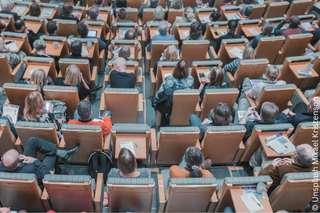In the study ‘Blending in or standing out? Gendered political communication in 24 democracies', WiSo researchers Danielle Pullan and Jens Wäckerle, as well as Bruno Castanho Silva from the Freie Universität Berlin, examine how these two contradictory incentives play out over the course of women's political careers by focusing on their speaking style in parliament. Do women speak in a way more similar to men the longer they stay in office, adopting a more masculine style that makes it theoretically easier to attain top leadership positions? Were the women who reached the top different from their peers in the first place? In other words, is this a socialization effect or a selection effect? How does it vary across different types of parties?
To answer these questions, an extensive dataset of parliamentary speeches was created, comprising 6.8 million speeches from 24 countries in Europe (East and West), North America and Oceania between 1987 and 2022. The researchers use a machine learning approach to measure how feminine the speaking style of politicians is.
The results indicate a socialisation effect, whereby women adopt a more masculine style the longer they remain in office. The effect is strongest for women in socially progressive parties. The study emphasises the role of parliaments as gendered workplaces that still encourage women to conform to the male norm.
